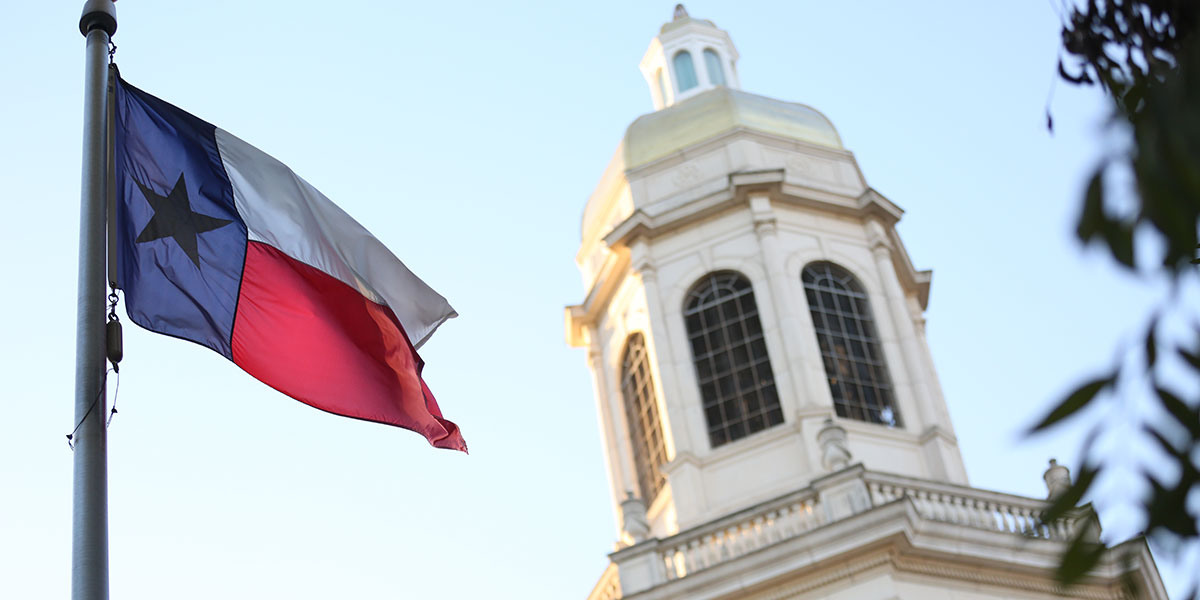Pro Texana: How Baylor research efforts are benefitting Texas

Most every Baylor alum knows the university’s motto: Pro Ecclesia, Pro Texana — for the church, for Texas. Befitting the Lone Star State’s oldest continuously operating university, our impact has lived out that phrase for more than 175 years in a variety of ways. Today, Baylor is a global university, with research addressing challenges both close to home and in far corners of the world — but our roots are still firmly anchored in Texas.
While it would be nearly impossible to list the breadth of research at Baylor with ties to our home state, here are just a few examples of BU research projects infused with a spirit of “Pro Texana”:
–> Does pollution impact thunderstorm activity? The Department of Energy wants to know, and called on two Baylor researchers to find out, using Houston as a testing ground. Drs. Rebecca Sheesley and Sascha Usenko, associate professors of environmental science, are part of a team funded by an $890,000 federal grant to measure pollution, atmospheric gases, weather readings and more to synthesize findings and better understand the impact of humans on the environment.
–> More than 75% of Texas counties qualify as behavioral health shortage areas, locations where residents lack accesses to primary care behavioral health specialists. In rural areas and in Spanish-speaking communities, the need is particularly acute. Drs. Becky Scott (PhD ’19), Elissa Madden (BA ’97, MSW ’01) and Danielle Parrish of Baylor’s Diana R. Garland School of Social Work are part of a $1.9 million grant from the Health Resources and Service Administration to specifically address this problem in Texas. Their Integrated Behavioral Health Certificate Program, which grew from a partnership with Waco Family Medicine, is training a new generation of behavioral health specialists to bridge this gap.
–> For students with blindness or visual impairment, Baylor chemistry and biochemistry professor Bryan Shaw is a friend. Spurred by his son’s battle with a pediatric eye cancer, Dr. Shaw has developed an app to detect that eye cancer and recently was awarded a $1.3 million grant to make science concepts and labs accessible to students with blindness. The project’s Texas ties will be appreciated by the Texas School for the Blind and Visually impaired in Austin, where children will participate in a pilot project that will eventually open labs to them (and others who face the same challenges).
–> No discussion of Texas-based research would be complete without mention of the Baylor Collaborative on Hunger and Poverty, which got its start as the Texas Hunger Initiative. From a modest beginning with an audacious goal — ending food insecurity — the Collaborative has repeatedly scaled up to serve not only the food needs within Texas borders, but across the nation. During the worst of the COVID pandemic, the USDA and private organizations sponsored massive efforts to scale Meals-to-You, a food-delivery-by-mail program that served more than 5 million people across 38 states and Puerto Rico.
And that’s just for starters. Other Baylor projects addressing autism, water and environmental health, cancer research and history all have Texas ties — because Pro Texana is a charge that continues to inspire the call to serve our neighbors, wherever they may be.
Sic ’em, Bears!

